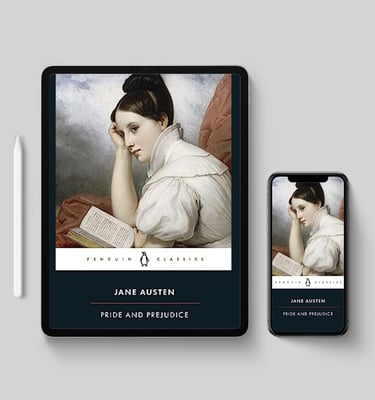Pride and Prejudice Characters
Read a summary for the characters in Jane Austen's book, Pride and Prejudice. Main Characters and side characters are included.
We also have a character map, free full book summary, and more study resources here.
Would you like to know more about who is who, and how all the characters all related in Jane Austen's Pride and Prejudice?
Check out our character map, which also serves as a family tree for the major characters in the story! Many minor characters are included as well, making this an excellent study resource, and a great companion to our character summaries.
Who is Elizabeth Bennet?
Elizabeth Bennet (also called "Eliza" and "Lizzy") is the spirited and intelligent protagonist in Jane Austen's novel, Pride and Prejudice. She is a vivacious young woman with a sharp wit, independent mind, and strong sense of individuality. Elizabeth possesses a striking beauty, highlighted by her expressive eyes and lively countenance. Her sparkling personality is characterized by her quick tongue, playful humor, and a natural inclination towards irony and satire.
Elizabeth's strength lies in her intelligence and perceptiveness. She is a keen observer of human behavior and possesses a shrewd judgment of character. While she is initially prejudiced against the proud and aloof Mr. Darcy, she gradually learns to see beyond first impressions and discovers her own capacity for growth and self-reflection.
Elizabeth is known for her strong moral compass and her refusal to conform to societal expectations. She values honesty, integrity, and authenticity, often challenging societal norms and expectations placed upon women in her time. Her determination to marry for love rather than for social or financial gain sets her apart from her contemporaries and shapes her decisions throughout the story.
Throughout the novel, Elizabeth's journey is marked by personal growth, as she confronts her own flaws and prejudices. Her ability to admit her mistakes and learn from them showcases her maturity and wisdom. Elizabeth's spirited nature, intelligence, and unwavering integrity make her an enduring and beloved literary character.
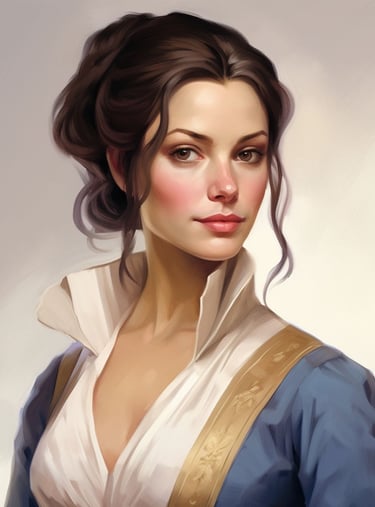

Who is Mr. Darcy?
Mr. Fitzwilliam Darcy is a complex and enigmatic character in Jane Austen's Pride and Prejudice. He is a wealthy and aristocratic gentleman with a reserved demeanor, which often leads others to perceive him as proud and aloof. Darcy possesses a tall and handsome appearance, distinguished by his noble features and an air of elegance.
Initially, Mr. Darcy comes across as arrogant and haughty, especially in his interactions with the novel's protagonist, Elizabeth Bennet. He is known for his reticence and tendency to hold himself above the social engagements of his peers. However, beneath his reserved exterior lies a fiercely loyal and honorable man with a deep sense of responsibility.
Darcy's upbringing and social standing have instilled in him a strong sense of duty and propriety. He takes his role as the head of his family and the protector of their reputation seriously. This leads him to make decisions based on societal expectations rather than personal desires, such as his initial refusal to engage with individuals he considers beneath his station.
Despite his flaws, Darcy possesses a passionate and generous nature. As the story progresses, his true character emerges, revealing a man of deep emotions and hidden vulnerability. Darcy's love for Elizabeth challenges his preconceived notions and propels him to overcome his pride, as he learns to acknowledge his mistakes and embrace personal growth.
Mr. Darcy's transformation throughout the novel highlights his capacity for self-reflection and the willingness to change. His sincerity and commitment to those he loves ultimately win over Elizabeth's heart, proving that beneath his initially unapproachable facade, he possesses genuine warmth, loyalty, and a deep capacity for love.
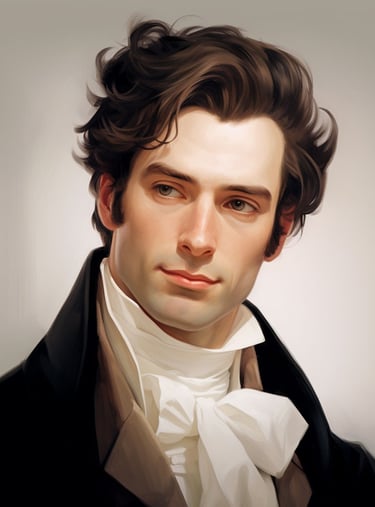

Who is Jane Bennet?
Jane Bennet is a kind-hearted and gentle character in Jane Austen's Pride and Prejudice. She is the eldest daughter of the Bennet family and possesses a striking beauty, characterized by her sweet and angelic appearance. Jane is often described as having a serene and calm demeanor, radiating warmth and compassion.
Jane's personality is marked by her unwavering optimism and her inclination to see the best in others. She possesses a gentle and forgiving nature, always seeking to find the good in people and situations. Her genuine kindness and sincerity make her well-liked by all who encounter her.
Unlike her spirited and outspoken sister, Elizabeth, Jane is more reserved and soft-spoken. She tends to be reserved in expressing her own emotions, choosing instead to prioritize the feelings and happiness of those around her. This selflessness is evident in her relationships, particularly with her sisters, as she always puts their well-being above her own.
Jane's romantic disposition is apparent throughout the novel. She is portrayed as deeply in love with Mr. Bingley, displaying unwavering affection and loyalty towards him. Her ability to maintain grace and composure even in the face of disappointment and heartache showcases her strength of character.
Despite her optimistic and trusting nature, Jane is not naive. She possesses a subtle understanding of social dynamics and recognizes the flaws in others, but chooses to focus on their positive aspects. Her portrayal serves as a contrast to the more critical and discerning personalities in the story.
Jane Bennet's character embodies goodness, compassion, and unwavering loyalty. She is a beloved figure in Pride and Prejudice and serves as a source of inspiration and moral guidance for those around her.
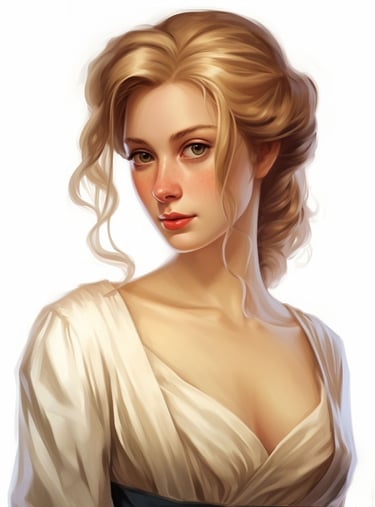

Who is Mr. Bennet?
Mr. Bennet is a witty and intelligent character in Jane Austen's Pride and Prejudice. He is the patriarch of the Bennet family and the father of five daughters. Mr. Bennet's most distinguishing characteristic is his dry and sarcastic sense of humor, which he employs to navigate the absurdities of the world around him.
Mr. Bennet is described as an intelligent man with a love for reading and solitude. He often retreats to his study, seeking solace in books and using them as a means to escape the noise and frivolity of his family life. His preference for solitude is also influenced by his somewhat detached and passive nature.
While Mr. Bennet enjoys the company of his daughters, he often remains detached from the responsibilities of parenting and the management of his household. He exhibits a certain indifference to the practical concerns of his family, relying on his sharp wit and humor to maintain a comfortable distance from the everyday affairs of his household.
Mr. Bennet's wit is showcased through his clever and often biting remarks, particularly in his interactions with his wife, Mrs. Bennet. He takes pleasure in teasing and bantering with her, which sometimes leads to a strained relationship between the two. However, his humor also serves as a means of coping with the more frustrating aspects of his family life.
Despite his tendency to be detached and cynical, Mr. Bennet demonstrates a genuine affection for his daughters. He recognizes their individual strengths and personalities, particularly his fondness for Elizabeth's intelligence and wit. While he may not always be actively involved in their lives, he does care for their well-being and happiness.
Mr. Bennet's character provides a critical perspective on the social conventions and absurdities of the time, often through his sharp observations and caustic remarks. His wit and humor contribute to the satirical tone of the novel and make him a memorable and distinct character in Pride and Prejudice.
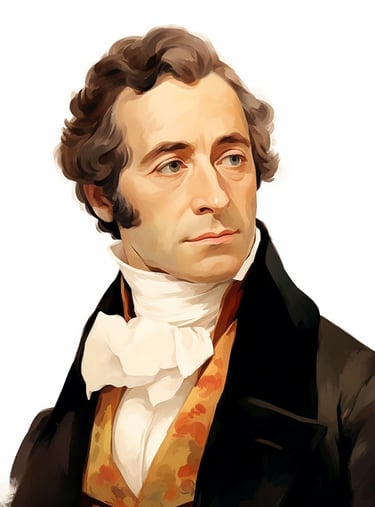

Who is Mrs. Bennet?
Mrs. Bennet is a lively and somewhat frivolous character in Jane Austen's Pride and Prejudice. She is the matriarch of the Bennet family and the wife of Mr. Bennet. Mrs. Bennet's most prominent characteristic is her obsession with marrying off her daughters, as her sole focus is to secure advantageous matches for them.
Mrs. Bennet is described as a woman of nerves and a high-strung disposition. She is often portrayed as flustered and prone to exaggerated emotions, particularly when it comes to the prospect of her daughters finding suitable husbands. Her primary concern is to ensure their financial security and social status, leading her to be preoccupied with matters of marriage.
In contrast to her more level-headed husband, Mrs. Bennet lacks subtlety and tact. She is known for her indiscreet and often embarrassing behavior, frequently making social gaffes in her quest to promote her daughters' prospects. Her lack of refinement and social awareness is a recurring source of tension and amusement within the novel.
Mrs. Bennet's character is driven by her single-minded determination to see her daughters married well. She is relentless in pursuing this goal, using any means necessary to attract the attention of eligible suitors. Her actions are often motivated by societal pressure and a desire to secure her daughters' futures, even at the expense of their personal happiness.
While Mrs. Bennet's behavior can be seen as comedic and overbearing, she does possess a genuine love for her daughters. Her actions, albeit misguided, are rooted in a maternal instinct to protect and provide for them. Despite her flaws, she experiences moments of vulnerability and concern for their well-being, particularly in challenging situations.
Mrs. Bennet's character serves as a satirical representation of the societal expectations and pressures placed upon women during the time period. Her exaggerated personality and single-minded focus on marriage add depth and humor to the story, while also shedding light on the complexities of social dynamics in Pride and Prejudice.
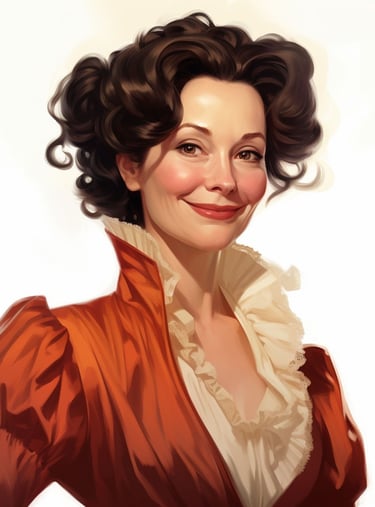

Who is Lydia Bennet?
Lydia Bennet is a vivacious and flirtatious character in Jane Austen's Pride and Prejudice. She is the youngest of the Bennet sisters and possesses a reckless and impulsive nature that sets her apart from her more reserved siblings. Lydia is known for her love of socializing, dancing, and pursuing the attention of young men.
Lydia is described as being high-spirited and energetic, with a penchant for seeking excitement and adventure. She is often portrayed as self-centered and lacking in proper decorum, often disregarding the social expectations placed upon young women of her time. Her behavior and actions are driven by her desire for immediate gratification and a disregard for long-term consequences.
One of Lydia's defining traits is her infatuation with officers in the military. She is particularly attracted to their uniforms and the attention they bring. This infatuation leads her to engage in a scandalous elopement with George Wickham, an officer with a dubious reputation. Lydia's impulsive decision puts her reputation and the reputation of her family at risk.
Lydia's character serves as a cautionary example of the consequences of unchecked impulsiveness and a lack of moral judgment. Her actions and their aftermath create a significant source of tension and conflict within the novel. Her behavior exposes the vulnerabilities and societal risks associated with young women who prioritize frivolity and immediate pleasure over prudence and propriety.
While Lydia's actions have serious consequences, her character also showcases the potential for growth and redemption. Through the intervention of others, particularly Mr. Darcy, Lydia is able to avoid total ruin and salvage her reputation. This serves as a turning point in the story and highlights the importance of family, community, and personal growth.
Overall, Lydia Bennet is a character whose reckless behavior and pursuit of immediate gratification contribute to the dramatic tension in Pride and Prejudice. Her character underscores the themes of societal expectations, reputation, and the dangers of succumbing to one's whims without considering the consequences.


Who is Kitty Bennet?
Kitty Bennet (also known as Catherine) is a secondary character in Jane Austen's Pride and Prejudice. She is the fourth daughter in the Bennet family, sandwiched between the more exuberant Lydia and the introverted Mary. Kitty's character is somewhat overshadowed by her more prominent sisters, and she often blends into the background.
Kitty is depicted as a young woman who is easily influenced and seeks validation from others. She lacks the spirited nature of Lydia and the studiousness of Mary, making her more susceptible to following the lead of those around her. She tends to imitate Lydia's behavior, looking up to her older sister and mimicking her flirtatious and attention-seeking ways.
While Kitty does not possess any distinctive traits or remarkable qualities, she plays a role in the narrative as a companion to Lydia. They often appear together, engaging in social activities and seeking the company of officers in the military. Kitty's character serves as a reflection of the influence of her surroundings and the impact of peer pressure.
Throughout the story, Kitty's character remains relatively stagnant. She does not experience significant personal growth or have a pivotal moment of self-realization. However, it can be inferred that her exposure to the consequences of Lydia's scandalous elopement serves as a cautionary tale, making her more aware of the potential pitfalls of reckless behavior.
In the larger context of the novel, Kitty's character underscores the varying personalities within the Bennet family and the influence of one's environment on individual behavior. She represents the importance of guidance and the potential for personal growth and maturation, even if it may not be explicitly explored within the narrative.
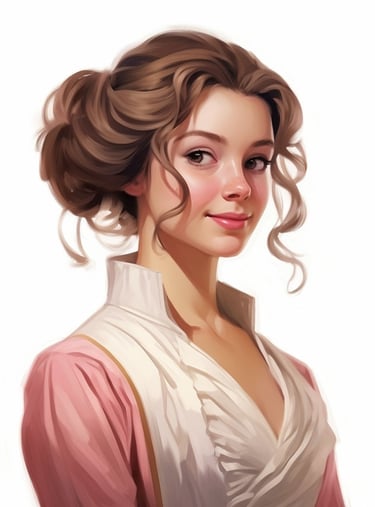

Who is Mary Bennet?
Mary Bennet is a serious and bookish character in Jane Austen's Pride and Prejudice. She is the middle daughter of the Bennet family, situated between the more lively and spirited sisters, Lydia and Kitty. Mary stands out as a contrast to her more social siblings due to her introverted and studious nature.
Mary is described as plain in appearance, lacking the physical beauty and charm possessed by her sisters. However, she compensates for this by striving for intellectual superiority and cultivating her knowledge and skills. Mary is often seen with a book in hand, absorbed in her studies or practicing her musical talents, particularly the pianoforte.
While Mary possesses a thirst for knowledge, her self-confidence often wavers, leading her to come across as pedantic and overly eager to showcase her intellectual prowess. She often attempts to engage in conversations of a serious and moral nature, but her lack of social finesse and self-awareness hinder her ability to connect with others.
Mary's character serves as a foil to the more socially adept characters in the novel. She embodies the idea of misplaced ambition, as her focus on intellectual pursuits often results in an inability to form meaningful connections or engage in the world around her. Her character underscores the importance of balance and self-awareness in personal growth.
Though Mary may initially come across as unsympathetic or overly serious, she does possess a desire for social acceptance and a sense of belonging. Her character experiences moments of vulnerability and self-reflection, particularly in moments when her efforts to gain recognition and validation fall short.
Overall, Mary Bennet's character serves as a reminder of the complexities of individuality and the importance of finding a balance between intellectual pursuits and emotional connection. While she may be socially awkward and lacking in self-awareness, Mary's character adds depth to the story and highlights the multifaceted nature of the Bennet family dynamic in Pride and Prejudice.
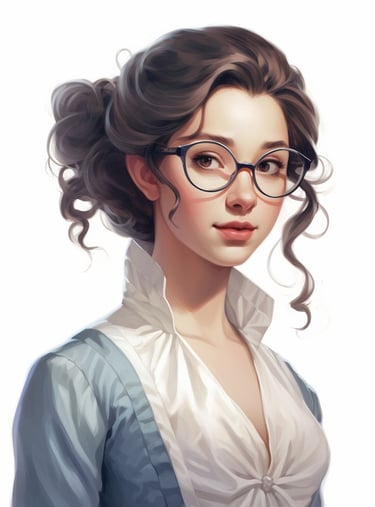

Who is Mr. Bingley?
Mr. Charles Bingley is a charming and amiable character in Jane Austen's Pride and Prejudice. He is a wealthy young gentleman from a respectable family and plays a significant role in the novel as a love interest for Jane Bennet, Elizabeth Bennet's older sister.
Bingley is described as handsome with a cheerful countenance that radiates warmth and affability. He possesses a genuinely kind and good-natured personality, often displaying a lighthearted and amiable disposition. His friendly and sociable nature allows him to easily form connections and make friends wherever he goes.
Bingley's most prominent characteristic is his openness and lack of pretense. He treats everyone with equal kindness and respect, regardless of their social status. He is not bound by the strict conventions of the upper class and is known for his sincerity and lack of artifice.
In matters of the heart, Bingley is shown to be deeply romantic and idealistic. He quickly becomes smitten with Jane Bennet, drawn to her beauty, grace, and gentle nature. Bingley's love for Jane is portrayed as pure and unwavering, and he demonstrates unwavering loyalty and devotion to her throughout the story.
Though Bingley may initially appear easily influenced by others, particularly his haughty sister Caroline and his close friend Mr. Darcy, he ultimately reveals a strength of character and a willingness to follow his heart. Despite societal expectations and pressures, Bingley's love for Jane prevails, leading him to make choices that align with his true feelings.
Charles Bingley's character embodies kindness, warmth, and sincerity. He serves as a foil to the more reserved and prideful characters in the novel and showcases the power of genuine affection and loyalty. His genuine nature and unwavering love for Jane make him a beloved character in Pride and Prejudice.
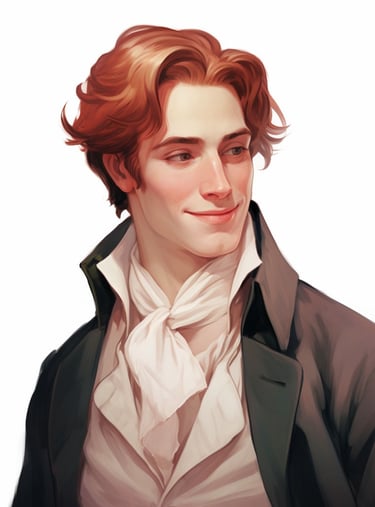

Who is Miss Bingley?
Miss Caroline Bingley, a character from Jane Austen's Pride and Prejudice, is a classic example of early 19th-century upper-class society in England. As the sister of Mr. Charles Bingley, a wealthy gentleman, she is financially secure, sophisticated, and accustomed to a high standard of living.
Miss Bingley is proud, haughty, and quite snobbish, always eager to emphasize her high social status and wealth. She frequently makes demeaning and condescending remarks about the social standing of the Bennet family, particularly their lack of formal education and breeding. She looks down upon anyone of a lower social status and can be quite manipulative.
Her disdain for Elizabeth Bennet is particularly pronounced, motivated by jealousy over Mr. Darcy's interest in Elizabeth, as Miss Bingley harbors a strong desire to marry Darcy herself. Miss Bingley is very assertive in her pursuit of Darcy, even though her feelings for him seem to be more about securing a higher social position than genuine affection. Her relationship with Darcy is also characterized by her attempts to belittle Elizabeth and to make herself appear more desirable in comparison.
Overall, Miss Bingley is a complex character who embodies the classism, vanity, and pretensions of the upper classes in the early 19th century. Her character serves as a foil to Elizabeth Bennet's authenticity, independence, and good-natured humor.
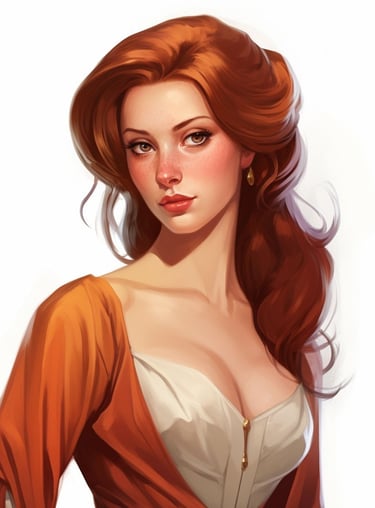

Who is Mr. Wickham?
Mr. George Wickham is a charismatic and manipulative character in Jane Austen's Pride and Prejudice. He is an officer in the military and plays a significant role in the novel as both a love interest and a source of conflict.
Wickham is described as handsome, charming, and possessing a pleasant demeanor. He excels in social situations and is skilled at captivating the attention and sympathy of those around him. His attractive appearance, combined with his apparent affability, makes him a popular figure among the Bennet sisters and others in the community.
Initially, Wickham presents himself as a victim of Mr. Darcy's mistreatment, claiming to have been deprived of his rightful inheritance. He skillfully uses his charm and persuasive storytelling to win the sympathy and trust of Elizabeth Bennet, in particular, leading her to form a negative opinion of Mr. Darcy.
However, as the story unfolds, Wickham's true nature is gradually revealed. It becomes evident that he is manipulative, opportunistic, and lacks a sense of moral integrity. He engages in deceitful behavior, such as eloping with Lydia Bennet, which jeopardizes her reputation and brings disgrace upon the Bennet family.
Wickham's character represents the dangers of superficial charm and false appearances. He preys upon the naivety and vulnerability of those around him, exploiting their trust for personal gain. His actions serve as a catalyst for conflict and drama within the narrative, revealing the consequences of misplaced trust and the importance of discernment.
Overall, George Wickham's character serves as a cautionary example of the deceptive nature of charm and the need for careful evaluation of others' intentions. He showcases the complexity of human behavior and the potential for individuals to mask their true nature beneath an appealing façade.


Who is Charlotte Lucas?
Miss Charlotte Lucas (later Mrs. Collins) is a pragmatic and level-headed character in Jane Austen's Pride and Prejudice. She is a close friend of Elizabeth Bennet and serves as a stark contrast to Elizabeth's romantic ideals and beliefs.
Charlotte is described as plain in appearance, lacking the physical beauty that often captures attention. However, she compensates for this with her practical and sensible approach to life. She possesses a keen understanding of the social realities of her time and recognizes the limited opportunities available to women in terms of financial security and social advancement.
Unlike Elizabeth, Charlotte is not driven by the pursuit of romantic love or idealistic notions of marriage. She values stability, security, and a comfortable home over passionate affection. This pragmatic mindset leads her to accept a marriage proposal from Mr. Collins, a clergyman with a significant inheritance, despite his lack of charm or compatibility.
Charlotte's character showcases the societal pressures and limitations faced by women during the time period. She is aware of the necessity of marriage for financial stability and social standing, even if it means sacrificing romantic notions of love and compatibility. Her decision to marry Mr. Collins is seen as a practical choice to secure her future and avoid the potential pitfalls of remaining unmarried.
Throughout the novel, Charlotte maintains a level-headed and composed demeanor, often offering pragmatic advice to Elizabeth and serving as a voice of reason. Her character exemplifies the trade-offs and compromises that women of her time were forced to make in order to navigate the social expectations and constraints placed upon them.
Charlotte's character adds depth to the story by highlighting the different perspectives on marriage and love within the novel. She embodies the societal realities and limitations faced by women, offering a pragmatic counterpoint to the more romanticized ideals pursued by other characters.
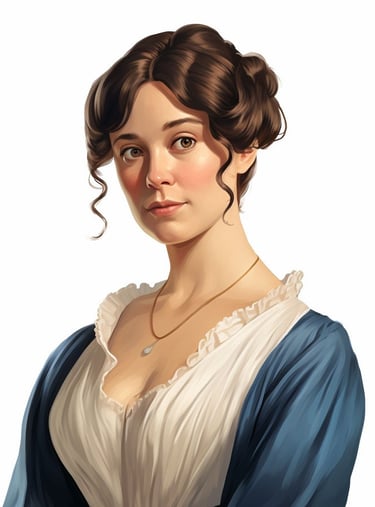

Who is Mr. Collins?
Mr. William Collins is a comically absurd and obsequious character in Jane Austen's Pride and Prejudice. He is a distant cousin of the Bennet family and serves as a source of both amusement and annoyance.
Mr. Collins is described as a pompous and self-important clergyman. He is portrayed as a man of limited intelligence and lacking in self-awareness, often making grandiose and exaggerated claims about his own importance. He possesses an unwavering belief in the societal hierarchy and the role he believes he is entitled to play within it.
One of Mr. Collins' defining characteristics is his excessive sycophancy, particularly towards his patroness, Lady Catherine de Bourgh. He constantly seeks to impress her and aligns himself with her opinions and preferences, even at the expense of his own dignity. His obsequiousness serves as a source of both ridicule and frustration for those around him.
Mr. Collins' intentions to marry one of the Bennet sisters, particularly Elizabeth Bennet, provide another layer to his character. His proposal to Elizabeth is marked by his arrogance and an inflated sense of his own worth, believing that she should be grateful for the opportunity to marry him. His pursuit of marriage is driven more by societal expectations and the desire for a respectable wife than by genuine affection.
Though Mr. Collins is primarily a figure of ridicule, his character adds a satirical element to the story. He represents the absurdity and pretentiousness found in some individuals of the time who blindly adhere to societal conventions and place importance on superficial displays of status and authority.
Overall, Mr. Collins' character serves as a source of comic relief and a critique of the social conventions and pretensions of the era. His exaggerated personality and lack of self-awareness make him a memorable and entertaining character within Pride and Prejudice.
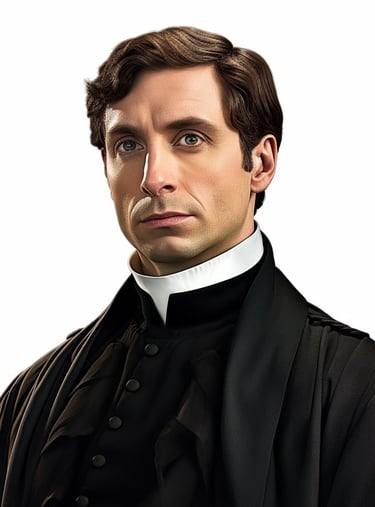

Who is Lady Catherine de Bourgh?
Lady Catherine de Bourgh is a haughty and domineering character in Jane Austen's Pride and Prejudice. She is an aristocratic and wealthy noblewoman, and her high social standing gives her a sense of entitlement and superiority.
Lady Catherine is described as an imposing and formidable figure. She possesses a commanding presence and an air of authority that demands respect from those around her. Her sharp tongue and blunt manner of speaking reflect her belief in her own importance and her expectation of deference from others.
As one of the most influential and influential figures in the novel, Lady Catherine is not afraid to assert her dominance and meddle in the affairs of others. She often imposes her opinions on those she considers beneath her, believing that her wealth and social status give her the right to dictate the lives of those around her.
Lady Catherine's character is defined by her strong adherence to societal norms and her belief in maintaining the status quo. She is a staunch traditionalist, upholding the rigid class distinctions and expectations of her time. She believes that those in lower social positions should remain subservient and unquestioning of their superiors.
While Lady Catherine embodies arrogance and condescension, she is not entirely one-dimensional. Her love and protectiveness for her daughter, Anne, reveal a more vulnerable side to her character. However, even in her interactions with Anne, she remains domineering and demanding, seeking to exert control over her daughter's life choices.
Lady Catherine's presence in the novel serves as a catalyst for conflict and provides a stark contrast to the more genuine and authentic characters. Her character highlights the absurdity of the aristocratic elite and their insistence on maintaining the status quo. Lady Catherine's portrayal critiques the arrogance and entitlement of the upper class, while also highlighting the resilience and strength of those who defy societal expectations.
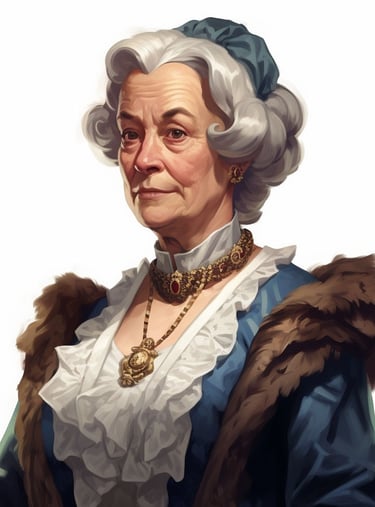

Who is Mr. Gardiner?
Mr. Gardiner is a kind, sensible, and amiable character in Jane Austen's Pride and Prejudice. He is the brother of Mrs. Bennet and the uncle of the Bennet sisters. Mr. Gardiner's character serves as a contrast to the more frivolous and flighty members of the Bennet family.
Mr. Gardiner is described as a man of integrity, intelligence, and good judgment. He possesses a calm and affable demeanor, which enables him to navigate social situations with grace and ease. His approachable nature and genuine interest in others make him well-liked and respected within the story.
Unlike Mrs. Bennet, Mr. Gardiner is practical and level-headed. He exhibits a keen understanding of the complexities of social interactions and demonstrates wisdom in his advice and guidance. He serves as a mentor figure to the Bennet sisters, particularly to Elizabeth, providing support and offering a source of reason amidst the chaos of their family dynamics.
Mr. Gardiner's character is marked by his kindness and generosity. He is known for his willingness to extend a helping hand and his genuine concern for the well-being of others. This is demonstrated through his involvement in resolving Lydia's elopement crisis, where he takes decisive action to protect the family's reputation and bring about a positive outcome.
Additionally, Mr. Gardiner is portrayed as a loving and supportive husband to Mrs. Gardiner. Their relationship serves as a positive example of a strong and affectionate marriage, contrasting with the strained dynamics of the Bennet household.
Overall, Mr. Gardiner's character provides a sense of stability, wisdom, and moral guidance within the novel. He serves as a role model for the Bennet sisters, demonstrating the importance of integrity, kindness, and rationality. Mr. Gardiner's presence adds depth and balance to the story, offering a respite from the more dramatic and volatile characters.
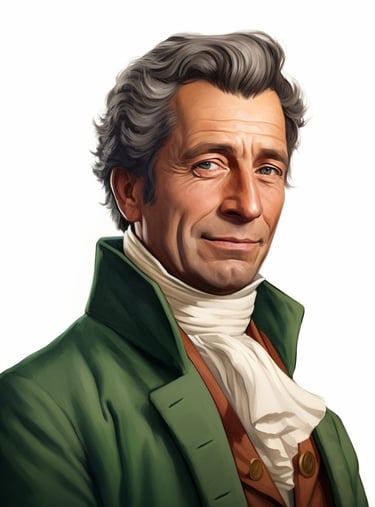

Who is Mrs. Gardiner?
Mrs. Gardiner is a warm, caring, and perceptive character in Jane Austen's Pride and Prejudice. She is the sister-in-law of Mrs. Bennet and the aunt of the Bennet sisters. Mrs. Gardiner's character is known for her nurturing nature and her ability to provide guidance and support to those around her.
Mrs. Gardiner is described as kind-hearted and gentle, with a genuine concern for the happiness and well-being of others. She possesses a keen understanding of human nature and a perceptive eye for social dynamics. Her empathetic and observant nature allows her to see beyond surface-level appearances and discern the true character of those she encounters.
Unlike her sister-in-law, Mrs. Gardiner is composed and level-headed. She acts as a calming influence within the story, providing a counterbalance to the more histrionic and dramatic members of the Bennet family. Her calm and rational approach to situations enables her to offer insightful advice and act as a source of stability.
Mrs. Gardiner's character is characterized by her wisdom and ability to provide guidance to the younger characters, particularly Elizabeth Bennet. She serves as a confidante to Elizabeth, offering counsel and helping her navigate the complexities of relationships and social expectations. Mrs. Gardiner's influence on Elizabeth's growth and development is significant and serves as a catalyst for positive change.
Additionally, Mrs. Gardiner is portrayed as a loving and supportive wife to Mr. Gardiner. Their marriage is depicted as one of mutual respect and affection, setting an example of a strong and harmonious partnership.
Overall, Mrs. Gardiner's character adds depth and warmth to the story. She represents the nurturing and wise figure that many of the younger characters turn to for guidance and support. Her presence highlights the importance of compassion, understanding, and emotional intelligence in navigating relationships and societal expectations.
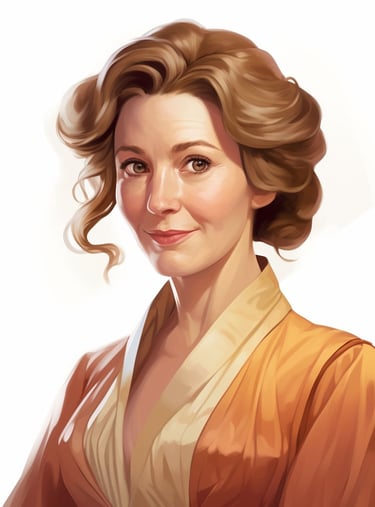

Who is Georgiana Darcy?
Georgiana Darcy is a minor but significant character in Jane Austen's Pride and Prejudice. She is the younger sister of Mr. Fitzwilliam Darcy, the novel's male protagonist. In many ways, her character contrasts with that of Miss Caroline Bingley.
Georgiana is portrayed as a shy, kind, and humble young woman, despite her high social standing and substantial wealth. Her natural disposition is modest and gentle, lacking the arrogance and pride often displayed by her older brother and completely devoid of the manipulative qualities exhibited by characters like Miss Bingley.
Georgiana is very accomplished for her age - she is noted for her musical talent and has been given a thorough and expensive education. Despite this, she remains modest and unassuming. Georgiana was almost led astray by the deceitful George Wickham, which reveals her youthful naivety, but this incident also earns her the sympathy of the reader.
She has a close relationship with her brother, Mr. Darcy, who is very protective of her following the Wickham incident. She is also fond of Elizabeth Bennet and warmly receives her when she visits Pemberley, which indirectly serves to improve Elizabeth's opinion of Mr. Darcy. Georgiana's kindness and genuine character endear her to most other characters in the novel, as well as to readers.


Who is Mrs. Hurst?
Mrs. Louisa Hurst, née Bingley, is a secondary character in Jane Austen's Pride and Prejudice. She is the older sister of Charles Bingley, the novel's secondary male protagonist, and Caroline Bingley. Mrs. Hurst is married to Mr. Hurst, a man who doesn't take much interest in anything beyond eating, drinking, and being idle.
Like her younger sister, Caroline, Mrs. Hurst is also preoccupied with social status and wealth. The Bingley sisters often share in their unkind remarks about the Bennet family and others whom they regard as socially beneath them. They are both snobbish and look down on people from lower social classes.
Though less outspoken than her sister, Mrs. Hurst often supports Caroline's disparaging comments about Elizabeth Bennet and her family, showcasing her own prejudiced attitudes. She is portrayed as somewhat indolent and self-centered, much like her husband.
Mrs. Hurst and Mr. Hurst live a life of leisure, mostly funded by her brother Charles Bingley's fortune. She doesn't have much of a role beyond reinforcing her sister Caroline's snobbery and providing a secondary representation of the upper class's dismissive attitude towards those of lower social status. In essence, Mrs. Hurst helps to portray the societal expectations and snobbery of the gentry class in the early 19th century England.
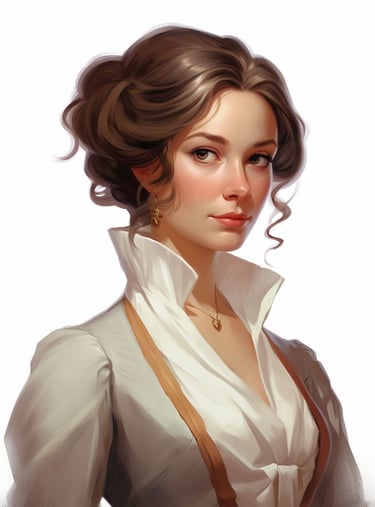

Who is Mr. Hurst?
Mr. Hurst is a minor character in Jane Austen's Pride and Prejudice. He is married to Louisa Hurst, née Bingley, the older sister of Charles Bingley and Caroline Bingley.
Mr. Hurst comes from an upper-class background and lives a life of idleness and indulgence. He is frequently depicted as being more interested in food, wine, and card games than in people or intellectual pursuits. He seldom contributes anything meaningful to conversations and shows little interest in his surroundings unless it directly affects his comfort or pleasure.
Austen does not develop Mr. Hurst's character in depth, but his lifestyle and attitudes provide a critique of the complacency and indolence that wealth and status can foster in the landed gentry of early 19th century England. Despite his wealth and status, Mr. Hurst lacks substance and depth, making him a somewhat satirical figure in the novel. He embodies a negative aspect of the upper class - a lack of purpose or ambition beyond personal comfort and pleasure.
In essence, Mr. Hurst represents the idle rich of his time, individuals who, despite their high social status, contribute little of value to society. His character contrasts sharply with the industriousness and moral integrity of characters like Elizabeth Bennet and her father.
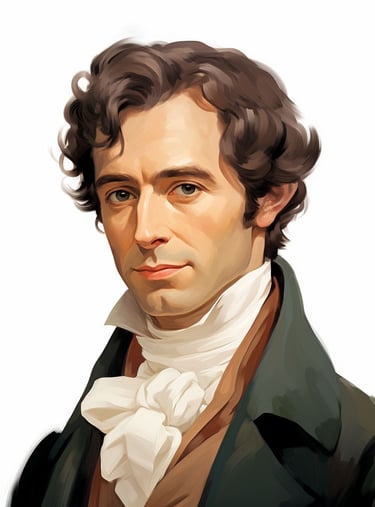

Who is Colonel Fitzwilliam?
Colonel Fitzwilliam is a supporting character in Jane Austen's Pride and Prejudice. He is the younger son of an earl and the cousin of Mr. Fitzwilliam Darcy, the novel's male protagonist.
As a second son in the British aristocracy, Colonel Fitzwilliam is not the heir to his father's title or estate, a circumstance that affects his options for marriage. This aspect of his character is portrayed when he admits that he must marry a woman of considerable wealth because he lacks an inheritance.
Colonel Fitzwilliam is affable, amiable, and much more socially adept than Mr. Darcy. He is described as being good-looking and engaging, with manners that are more immediately pleasing than those of his cousin. He can converse easily and make himself agreeable to those around him. His cordial and friendly demeanor contrasts with the pride and aloofness often displayed by Mr. Darcy.
During his time in Hertfordshire with Darcy, he becomes friendly with Elizabeth Bennet and inadvertently reveals crucial information about Darcy's interference in her sister Jane's relationship with Mr. Bingley. This sets in motion a significant plot point in the novel.
In summary, Colonel Fitzwilliam is a pleasant, sociable character who plays a crucial role in the unfolding of the plot in Pride and Prejudice His character also provides a critique of the constraints of class and inheritance laws in early 19th century England.
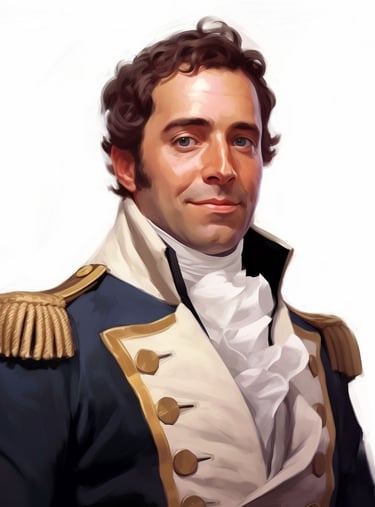

Who is Anne de Bourgh?
Anne de Bourgh is a minor character in Jane Austen's Pride and Prejudice. She is the only daughter of the formidable Lady Catherine de Bourgh, and is often described as sickly and frail, with a weak constitution.
Anne de Bourgh has a significant yet mostly off-stage role in the novel. She has been intended from her infancy to marry her first cousin, Mr. Fitzwilliam Darcy, the male protagonist of the novel. This intended match, which is heavily emphasized by Lady Catherine, forms a critical part of the narrative tension.
Despite her potential status as a rival to Elizabeth Bennet for Mr. Darcy's affections, Anne is a passive figure throughout the novel. She is described as thin, pale, and sickly, spending much of her time indoors. She rarely speaks, even when visited by other characters, and has little personality or agency in the novel. This contrasts sharply with her domineering mother and the lively, intelligent Elizabeth Bennet.
Anne's weak constitution and lack of personal charm or accomplishment make her a less-than-desirable match for Darcy, despite the wealth and social position such a match would bring. Her character serves to highlight the societal expectations of marriage in Austen's time, especially among the landed gentry and aristocracy. However, it also underscores the importance of personal qualities and compatibility in marriage, as exemplified by the eventual union of Darcy and Elizabeth.
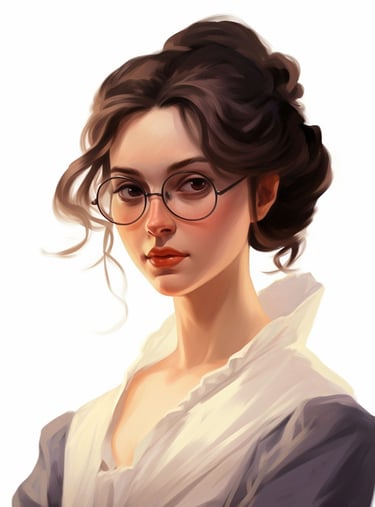

Who is Sir William Lucas?
Sir William Lucas is a minor but noteworthy character in Jane Austen's Pride and Prejudice. Having been knighted for his services to the crown in a city role, he retired with a sense of elevated status and now resides in the village of Meryton. He's a neighbor of the Bennet family and is the father of Charlotte Lucas, Elizabeth Bennet's close confidante before her marriage to Mr. Collins. An amiable and courteous man, Sir William often exhibits a hint of formality, especially when reflecting on his knighthood or discussing his time in the city. This pride in his title can sometimes make him appear excessively deferential to those of higher rank. However, his intentions are fundamentally good-hearted, desiring the best for his children and those around him. For instance, he expresses considerable delight when Charlotte secures her marriage with Mr. Collins, viewing it as a significant elevation in status. Through Sir William Lucas, Austen artfully highlights the social hierarchies, ambitions, and manners of the English gentry of her era.
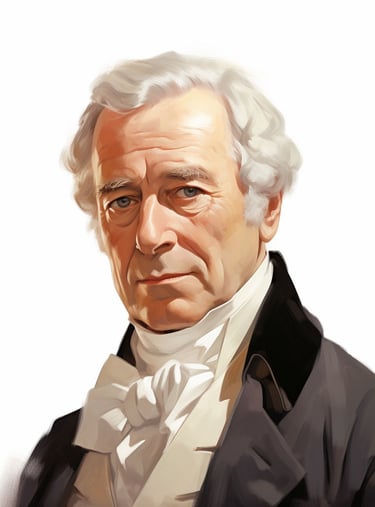

Who is Mrs. Lucas?
Mrs. Lucas, a character in Jane Austen's Pride and Prejudice, is the wife of Sir William Lucas and the mother to Charlotte and Maria, among others. Residing in Lucas Lodge in the village of Meryton, Mrs. Lucas is a woman of civility and domesticity, embodying the expected roles and behaviors of women in her social class during the Regency era. While she often mirrors her husband's delight in social standings and propriety, she tends to be more subdued and sensible than her counterpart, Mrs. Bennet. A supportive mother, she exhibits genuine contentment when Charlotte, her eldest daughter, secures a marriage to Mr. Collins. Through Mrs. Lucas, Austen provides a gentle critique of the societal norms and expectations placed upon women of the time, highlighting their often limited spheres and the value placed on matrimonial matches as a means of securing social and financial stability.
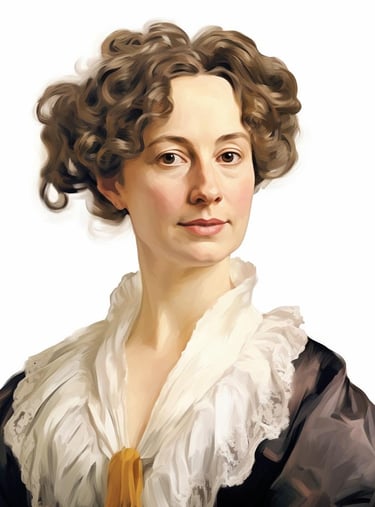

Who is Maria Lucas?
Maria Lucas is a secondary character in Jane Austen's Pride and Prejudice, often overshadowed by her older sister, Charlotte Lucas. As the younger daughter of Sir William and Lady Lucas, Maria resides in the village of Meryton alongside the Bennet family. She is characterized by her youthful naiveté and is easily impressed by status and material displays, a trait evident during her visit to Rosings Park with Charlotte and Elizabeth. Her impressionable nature contrasts sharply with Elizabeth Bennet's keen insight and discernment. Although not central to the novel's primary narrative, Maria serves as a lens through which Austen satirizes the superficial values and concerns of the English gentry during her time. Her admiration for the grandeur of Lady Catherine de Bourgh and the opulence of Rosings reveals the societal preoccupation with wealth and class distinctions.
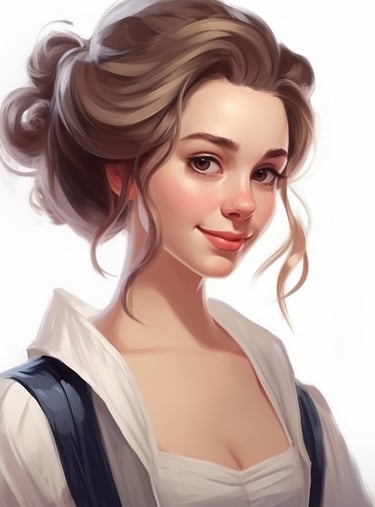

Who is Mrs. Philips?
Mrs. Philips, a supporting character in Jane Austen's Pride and Prejudice, is the younger sister of Mrs. Bennet and sister to Mr. Gardiner. Residing in Meryton, she is married to an attorney, which places her socially below her Bennet relations but offers her a certain level of respectability in the community. Mrs. Philips is fond of gossip and often acts as a conduit of news from Meryton to the Bennet household, especially regarding the militia officers stationed nearby. Her home becomes a frequent gathering spot for the younger Bennet sisters, especially Lydia and Kitty, who are enamored with the officers. While she doesn’t possess the same dramatic flair as Mrs. Bennet, Mrs. Philips shares her elder sister’s enthusiasm for matchmaking and social engagements. Through characters like Mrs. Philips, Austen subtly critiques and showcases the preoccupations and foibles of provincial life during her era.
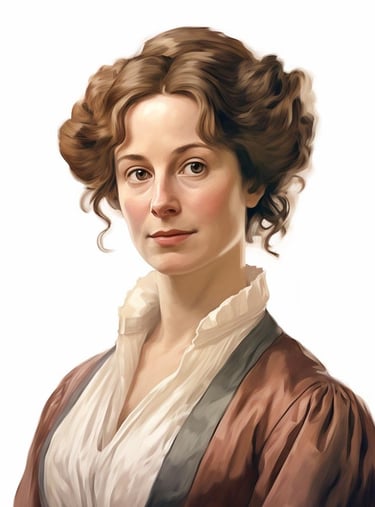

Who is Mr. Philips?
Mr. Philips is a minor character in Jane Austen's Pride and Prejudice. Married to Mrs. Philips, the younger sister of Mrs. Bennet, he works as an attorney in the town of Meryton. This profession places him in a lower social class compared to the landed gentry like the Bennets, but it grants him a steady and respectable position within the local community. Unlike many other characters in the novel, Mr. Philips does not possess any particularly strong or distinguishing personal traits that are elaborated upon; he mostly remains in the background. His office, however, serves as an initial meeting place between Elizabeth Bennet and Mr. Wickham, facilitating one of the novel's pivotal relationships. Through Mr. Philips, Austen subtly underscores the class distinctions and nuances that permeate society in the Regency era.
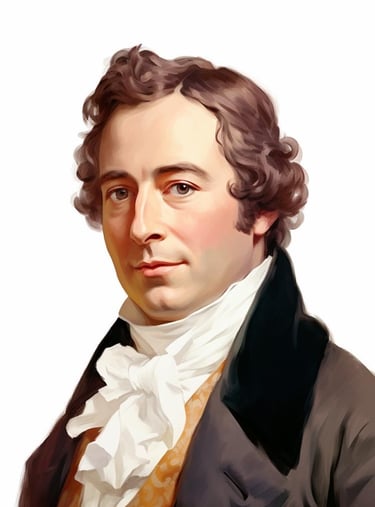

Support Ai Read to Me
Help us create more audiobooks and release more free content! Shop our store, or purchase anything on Amazon via the book affiliate links below.
We are very grateful for your support!






